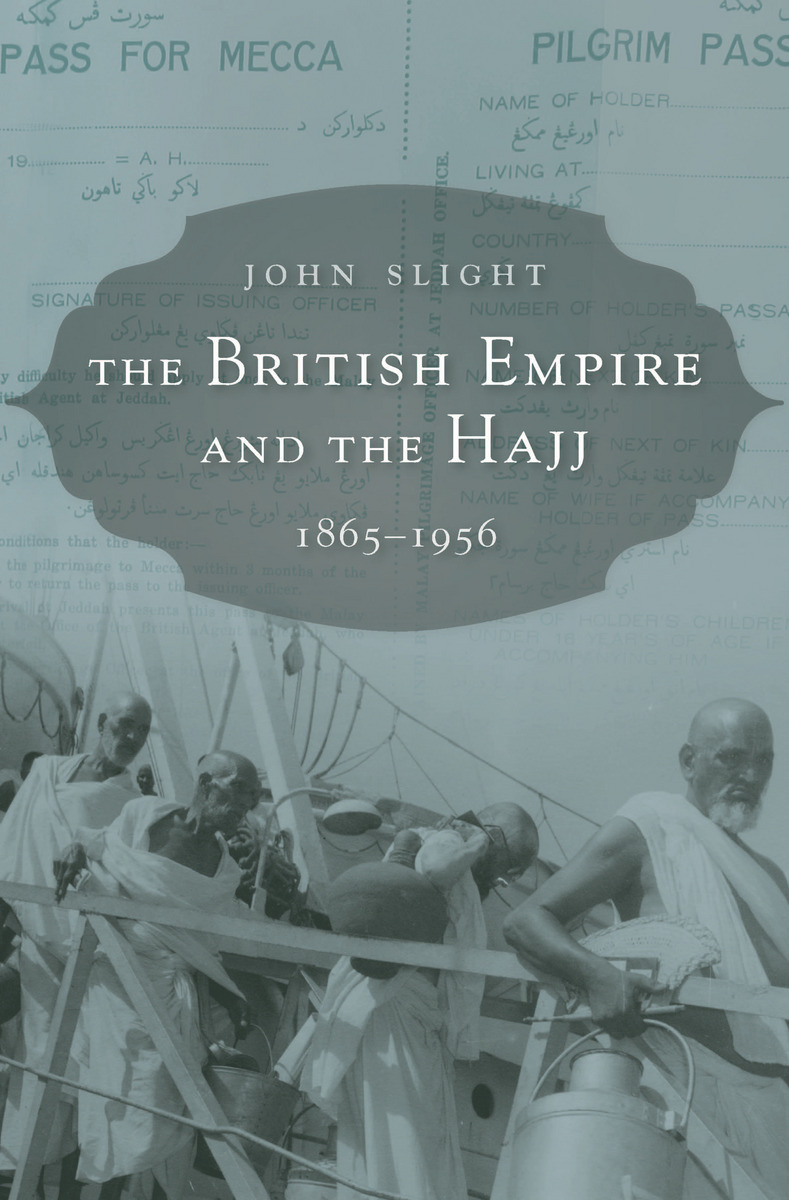
The British Empire and the Hajj, 1865–1956. By John Slight. Massachusetts: Harvard University Press. Pp440. HB. 2015. £29.95.
The renowned British Orientalist, David Samuel Margoliouth (d 1940), once wrote that Britain was ‘the greatest Moslem power in the world’, thus echoing the words of Maulvi Chiragh Ali (d 1895), a prominent nineteenth century Indian modernist Muslim scholar, who wrote in 1883 that ‘the British Empire is the greatest Mohamedan power in the world’.
There are several reasons why both Margoliouth and Ali hailed the British Empire as a ‘Muslim power’. Firstly, at its height the empire ruled a significant part of the Muslim world extending into Asia, Africa and the Middle East. Secondly, the empire governed more than half of the world’s Muslim population and, consequently, Islam became the most widely followed religion within the British Empire at the time.
Thirdly, Britain’s relationship with Islam was not as antagonistic as some scholars would have us believe, not least because the imperial officials and administrators, by and large, refrained from interfering with the fundamental beliefs and practices of its Muslim population.
In addition to being able to freely build mosques for the purpose of daily prayers, establish madrasahs (religious seminaries) for imparting Islamic knowledge and learning, and observe fasting during the month of Ramadan as well as discharging the duty of paying Zakat (obligatory levy on excess wealth), Muslims were able to perform the Hajj. Indeed, British officials from different parts of the empire played their part in facilitating the annual pilgrimage to Makkah (Hajj) despite the political, demographic, geographical and logistical challenges of the time.
In the book under review, John Slight, a Research Fellow in History at St John’s College, Cambridge, focuses his attention on the relationship and interaction that took place between the officials of the empire and the performance of the ‘fifth pillar of Islam’ by its Muslim population from 1865 to 1956.
In the words of the author, ‘The pilgrimage is the most significant large-scale movement of people in history for a common purpose. In the period covered by this book, a large proportion of pilgrims came from territories under various forms of British rule.
The Hajj and the pilgrims that performed this ritual became a subject of great interest to imperial powers, Britain first among them. Britain’s engagement with the pilgrimage became an established feature of imperial administrations across Africa and Asia…As a result of the scope and depth of British involvement in the pilgrimage, Britain’s Muslim empire was a tangible political, organizational, and religious entity. This conceptual vision of the British empire provides a valuable new framework for examining Anglo-Muslim interactions in the imperial era and for rethinking the nature of Britain’s imperial experience.’ (p2)
As tens of thousands of Muslims, both men and women, of diverse racial, cultural, linguistic and socio-economic background, went out in the direction of Makkah every year from all the leading centres of the Muslim world as well as remote corners of Africa, Middle East and Asia, such a large movement of people often required the colonial rulers to invest heavily in the administration of the Hajj.
The author explores this important but largely neglected history of Hajj and does so by tracing British involvement with the regulation and performance of this Islamic ritual from early 1860s until the Suez Crisis of 1956. In the process he draws on the lives and adventures of many prominent Muslim and non-Muslim personalities including Sir Richard Francis Burton (d 1890), Thomas Cook (d 1892), the Begums of Bhopal namely Nawab Sikander (d 1868) and Nawab Sultan Jahan (d 1901), and T E Lawrence (d. 1935), better known as Lawrence of Arabia, among others.
In addition to a useful introduction, the author contextualises the subject of this book in chapter one before exploring Britain’s involvement with the Hajj during last third of the nineteenth century. In chapters 3, 4, 5 and 6, the author covers the period from 1901 to 1939, while the epilogue surveys Britain’s role in the Hajj during the Second World War, followed by the period of decolonisation, until the Suez Crisis of 1956 erupted.
In the conclusion, the author argues that Britain’s involvement with the Hajj continues to this day, albeit in a very different geo-political context to that covered in this book. He is right to conclude saying that ‘the British empire’s long association with the Hajj was an extraordinary episode in the history of British imperialism, a complex interaction marked by religious, political, and economic change, conflict, contestation, and collaboration. Ruling over a Muslim empire and engaging with the Hajj were integral parts of the British imperial experience.’ (p321)
Based on a combination of archival and secondary sources, this is an unusually informative, meticulously researched and highly readable book. Consisting of 100 pages of notes, glossary and references, the index is far too brief. Even so, this book will prove to be a useful source of reference on the subject for future researchers and writers alike.
Muhammad Khan. M Khan is writing the first full biography of Nawab Abdul Latif CIE (1828–1893) of British India.